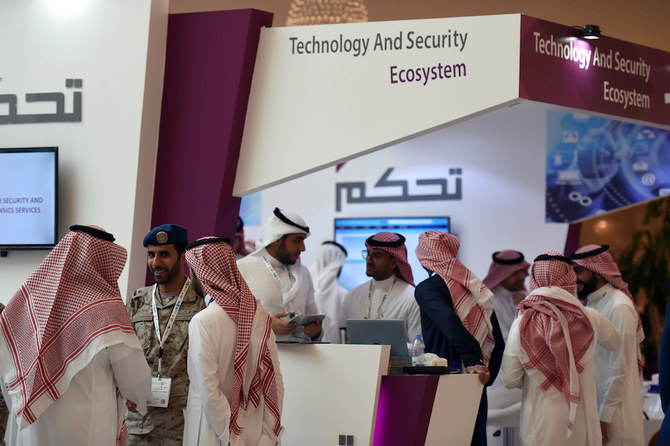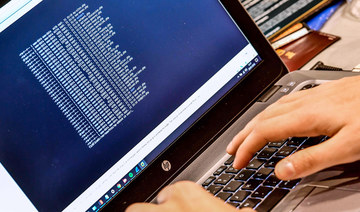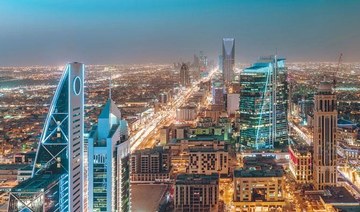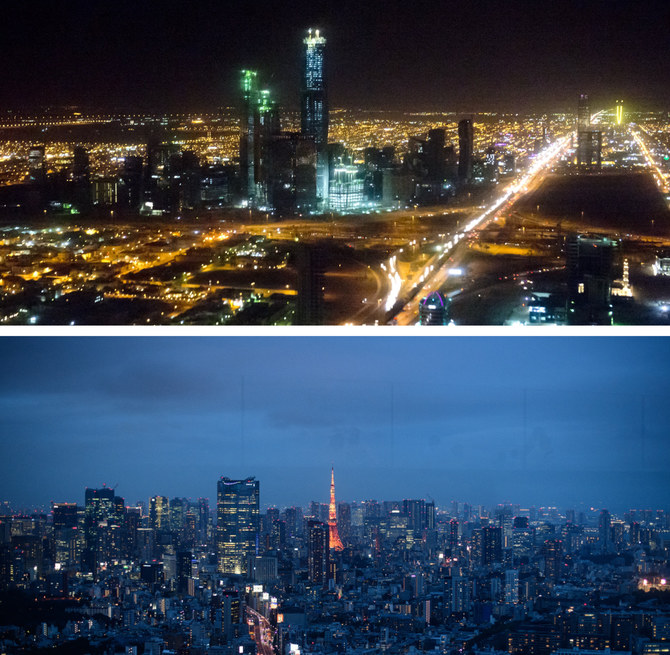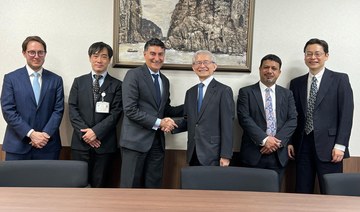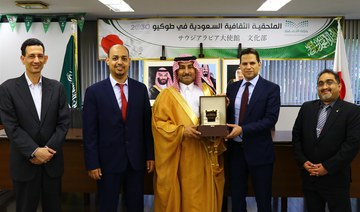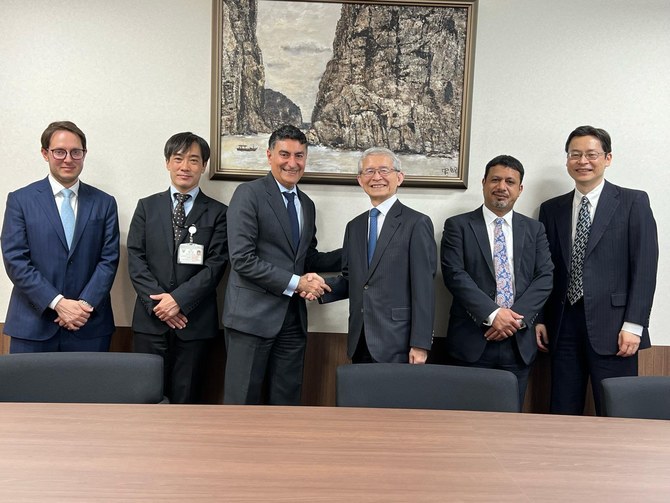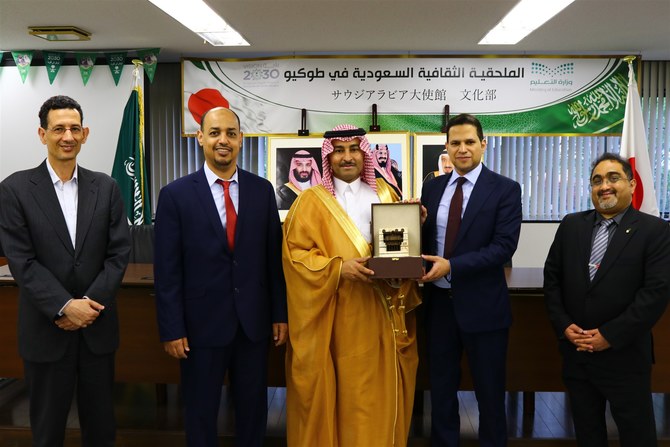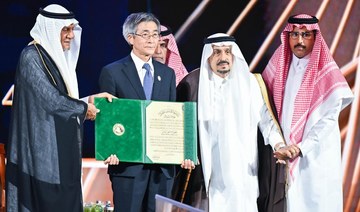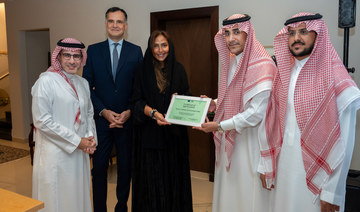DUBAI: Saudi Arabia is one step closer to becoming a global cloud-data hub with the launch of a data center by Oracle, a leading computer technology corporation based in the US. The Kingdom has been designated as the company’s cloud-data hub in the Middle East and North Africa (MENA) region.
The center in Jeddah will focus on digital security technologies and innovations, including virtual simulation of evolving threats. It is yet another step in Saudi Arabia’s digital transformation, in line with Saudi Vision 2030’s goal of upgrading the country’s information and communications technology infrastructure.
In emailed comments to Arab News, Dr. Muhammad Khurram Khan, CEO of the Washington-based Global Foundation for Cyber Studies and Research and cybersecurity professor at King Saud University, said: “Being one of the leading and fastest-growing digital powers in the region, Saudi Arabia is in great need of technological innovations, solutions and services to cater to its requirements for smart cities, industry 4.0, cloud computing, 5G, cybersecurity, the Internet of Things, blockchain, and artificial intelligence.
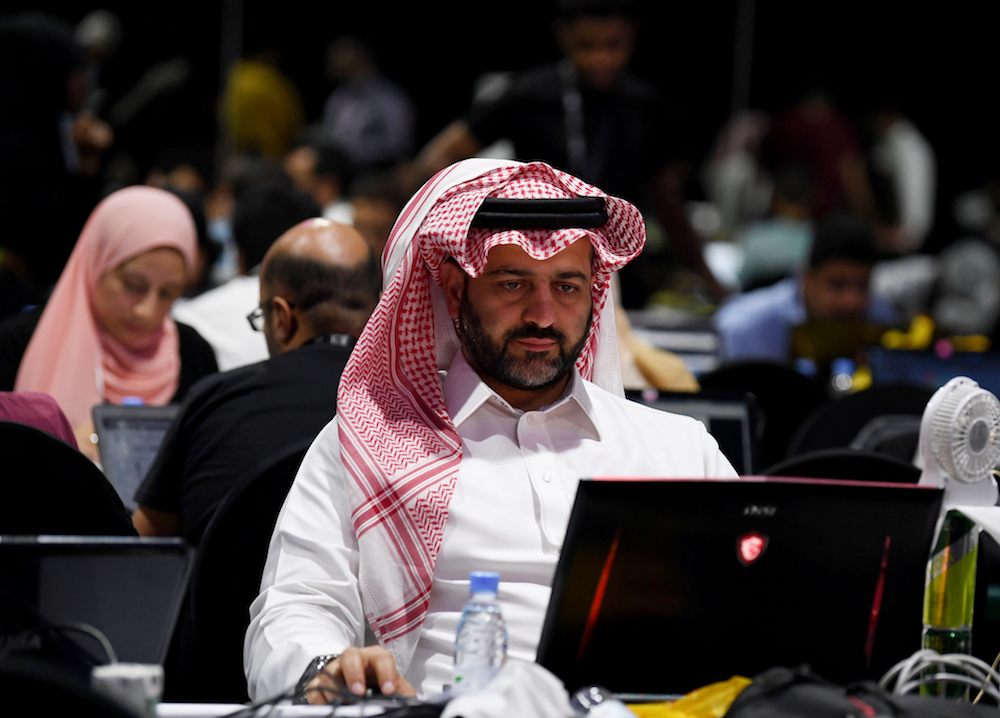
Participants attend a hackathon in Jeddah on August 1, 2018, prior to the start of the annual Hajj pilgrimage in the holy city of Makkah. (AFP/File Photo)
“To meet this massive demand for digital transformation by public- and private-sector organizations, the cloud data center by Oracle in the Kingdom will play a pivotal role in accelerating innovation, generating new horizons of digital services, creating competition and providing customers with incredible experiences in the thriving market.”
He believes the move will also pave the way for job creation and spawn new business opportunities for local talent. “The presence of the cloud data center in the Kingdom will enable organizations to scale up their digital services faster than ever before,” Khan wrote in the email. “It may also provide them with cheaper in-country services, better data management, a more secure and resilient environment, data sovereignty controls, and on-demand customer service for more efficient business operations.”
Khan cited additional likely benefits from the center, including the empowerment of local start-ups, entrepreneurs and innovators enabling new products and services to enter the market faster.
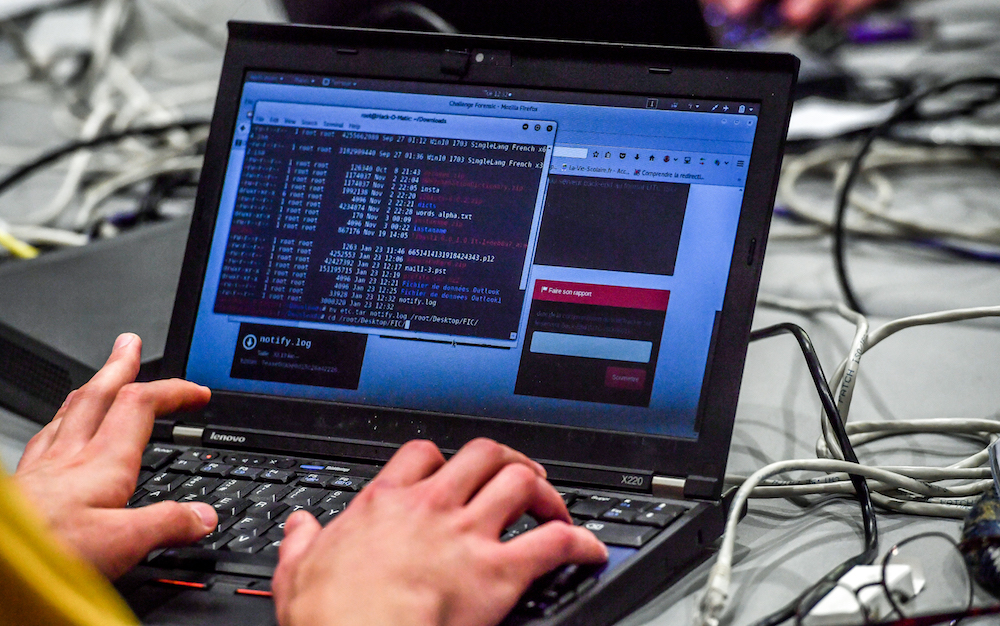
A person works at a computer during the 10th International Cybersecurity Forum in Lille on January 23, 2018. (AFP/File Photo)
“The development could underpin the efforts of Saudi Arabia to be among the leading nations that are bracing for the Fourth Industrial Revolution,” he said.
Khan pointed to skyrocketing demand for cybersecurity solutions and services in the Kingdom — which ranks in the top 10 countries most targeted by “significant” cyberattacks. “Cyber threats faced by public- and private-sector organizations are growing exponentially due to the Kingdom’s geopolitical importance in the region and its fast-paced digital transformation,” he said.
A recent report on the cybersecurity sector in the Middle East and Africa estimates that Saudi Arabia’s market may grow to $5.5 billion by 2023. “This huge cybersecurity demand could be efficiently met by the local deployment of cloud-based cybersecurity services,” Khan said. “The role of cloud computing is of paramount importance to predicting and defeating cyberattacks, which leverages AI, big data and instant analytics in real time to address threats and suppress vulnerabilities that seek to undermine security.”
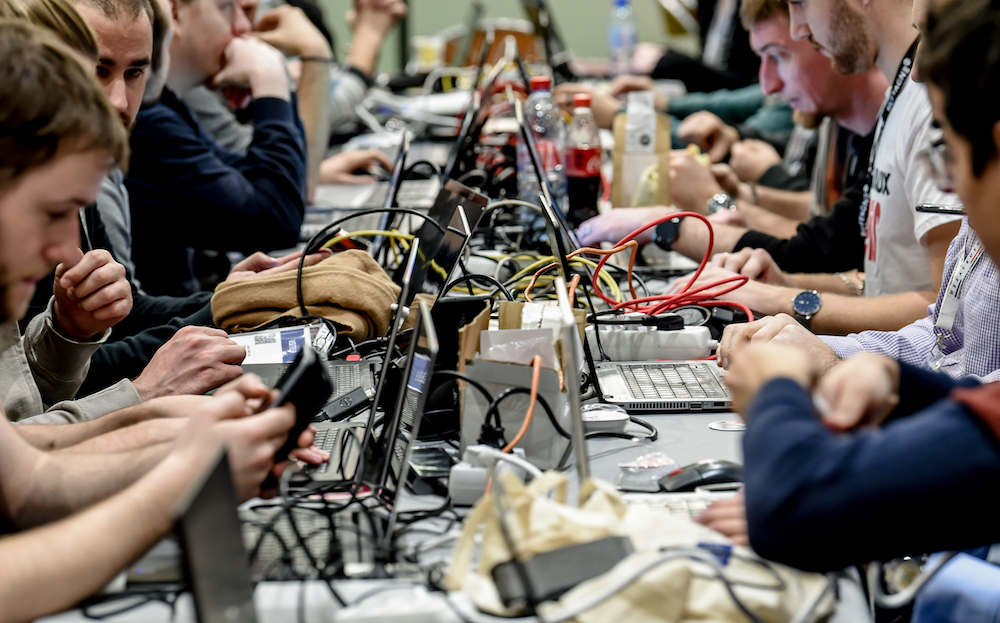
People work on computers on January 22, 2019 in Lille, during the 11th International Cybersecurity Forum. (AFP/File Photo)
In his comments, Khan further pointed to the interest shown by regional and local organizations in the cloud-based security operations center, and cost-effective solutions for security orchestration, automation and response, security information, and event management.
The move is timely too, as a new report revealed that 95 percent of businesses in the Kingdom have been hit by at least one cyberattack in the past year. According to “The Rise of the Business-Aligned Security Executive,” released by Tenable and conducted by Forrester Consulting, the majority of businesses in Saudi Arabia have witnessed a rise in cyberattacks over the past two years.
“More than ever, Saudi Arabia must make a specific tailor-made solution for its sovereign requirements to include digital security and virtual simulation,” said Matthew Cochran, CEO and co-founder of URS Laboratories in the UAE. “Post COVID-19, the region will look to the Kingdom for alignment and leadership on these issues.”
He described the developments as the culmination of decades of planning for scenarios that are becoming increasingly likely due to global circumstances.
“Pre COVID-19, the future of digital security and virtual simulation in the region was important,” Cochran told Arab News. “Now, it is vitally important, if not life-saving, to have it in place — not tomorrow, today. The future is at stake and we must meet the challenges together.”
*****
READ MORE: Youth hold key to Saudi Arabia’s future cybersecurity: Industry experts
Fake apps growing threat to personal data, says cybersecurity expert
*****
Commentators have said that the Saudi center will allow Oracle to facilitate in-country or in-jurisdiction disaster-recovery capabilities and allow their clients to meet their obligations on data security in the country.
“Oracle has a strong presence within the GCC region, particularly in the UAE and Saudi Arabia,” said Dean Mikkelsen, an independent IT and cybersecurity consultant working with UAE-based Hannibal Global Insight. “Companies are moving more and more data to the cloud within the GCC. These nations also require that data be kept within their own country, as it relates to privacy and data-security issues.
In the Kingdom, provisions in the Cloud Computing Regulatory Framework state that cloud clients must ensure that no customer content — including sensitive content from public authorities — is transferred outside the Kingdom.
“The Essential Cybersecurity Controls issued by the National Cybersecurity Authority in the Kingdom — which are all applicable to Saudi government entities — require that information be hosted and stored in-country,” Mikkelsen told Arab News. “With Oracle developing this capability in-country, they are meeting the requirements necessary to protect data in the nation.”
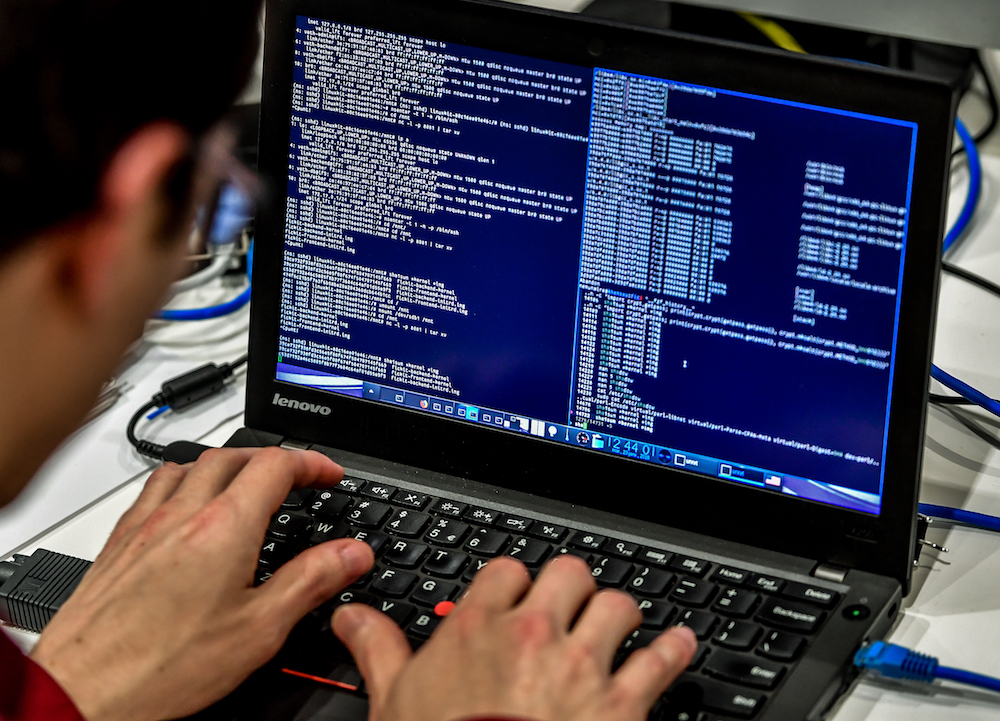
Saudi Arabia is one step closer to becoming a global cloud-data hub with the launch of a regional data center by Oracle, a leading computer technology corporation based in the US. (AFP/File Photo)
As Saudi Arabia continues to move away from a petroleum-based economy, it has allowed its technology sectors more room for growth.
“With Oracle moving further into Saudi Arabia, it matches the Kingdom’s vision to become an international leader in science and technology,” said Mikkelsen. “There has been, over the past few years, a large-scale migration of data to the cloud and making sure that data is secure is very important.”
He said data breaches are becoming more widespread, be they from phishing attacks or malware, in a potentially costly development for businesses. UAE-based cybersecurity company DarkMatter recently stated that breaches are “widespread and frequently undetected” in the Middle East.
“During the COVID-19 pandemic, there has been a spike in network spoofing and phishing attacks, as cyber attackers look to exploit the unfamiliar current climate for their own nefarious purposes,” Mikkelsen said.
“Through regulatory environments and legislation, such as those defined in Saudi Arabia or the UAE, companies and governments are working together to protect the digital assets of individuals, corporations, and their critical infrastructure. With the move made by Oracle in Saudi Arabia, the Kingdom is saying it is open for business and that anyone’s data will be safe and secure.”
--------------------
Twitter: @CalineMalek



